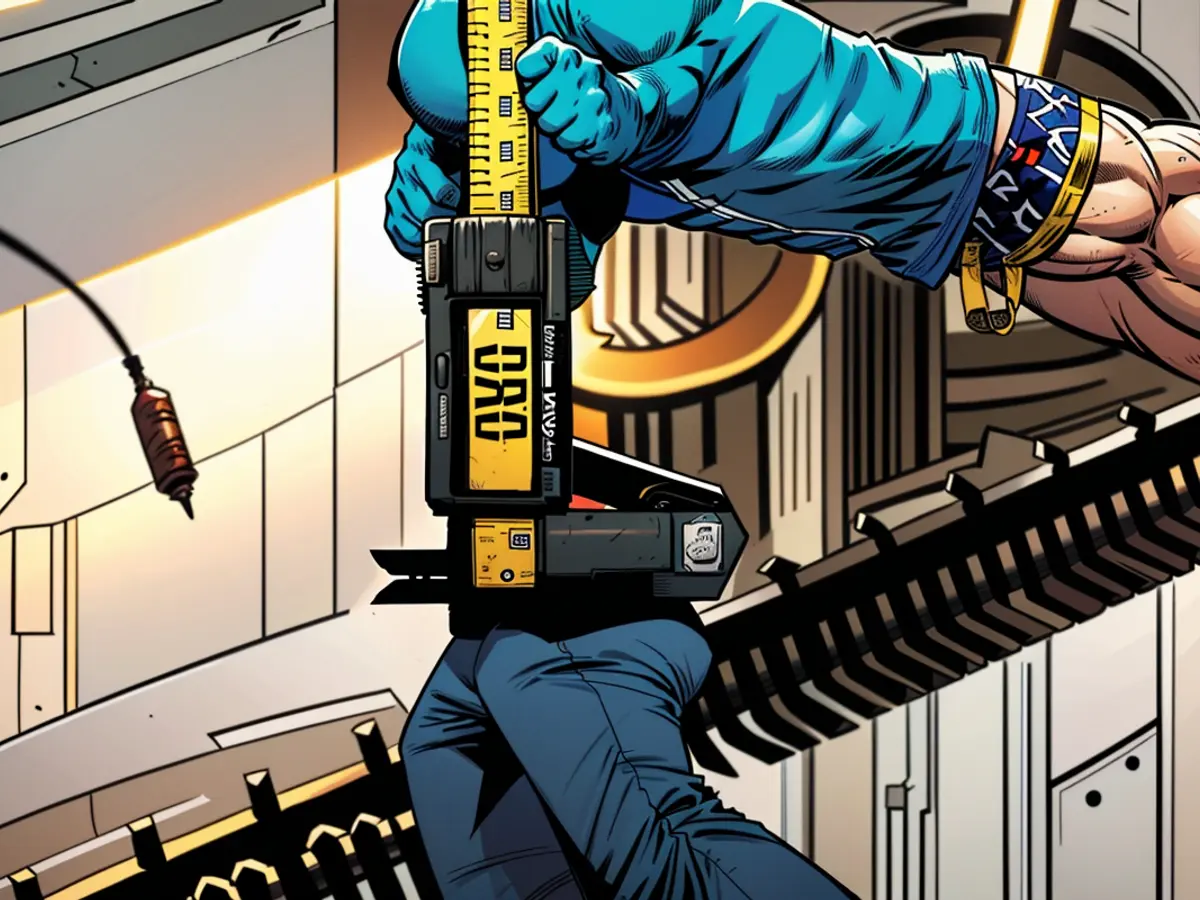Secure Festivals - The emergency doctor is convinced: Hydrogen is roughly as dangerous as alcohol
"We have been surprisingly overwhelmed", says Gernot Rücker, emergency medic and researcher at the University of Rostock. Shortly after opening the mobile drug test containers on the grounds of the Fusion-Festival at the beginning of July, a 20 to 30 meter long queue formed.
The test crew had not anticipated such interest. Although the team of 20 employees and employees worked in shifts every festival day from 10 am to 10 pm, they had to adjust their original concept.
Initially, the researchers examined various types of drugs that visitors brought to the containers: powder, paste, and pills. Later, only pills remained. Each one was weighed to the hundredth of a millimeter, measured, and photographed. Then, one pill was pulverized with a mortar and the contents and their concentrations were determined using an infrared spectroscope. The procedure took approximately six minutes per sample.
"The procedure is incredibly simple and effective", says Rücker. The results may not be exact to the milligram, but they are sufficient for determining if a pill contains harmful additives or an excessive dosage. Additionally, the equipment is no larger than a shoebox and costs around 60,000 Euro, making it relatively affordable.
Peaceful Festivals: A tested pill ensures safety for thousands of festivalgoers
Surprisingly, only 13 of the 153 examined pills contained a dangerously high dose of active ingredient. Photos of these with a corresponding warning sign were hung up all over the festival grounds. "This way, we reach hundreds or even thousands of festivalgoers who have bought the same drugs", says Rücker. There were no overdose cases during the weekend, the Notfallmedic reports happily.
The concept is therefore a success, Rücker believes. And it seems that the organizers of other festivals are also convinced. "They want us to be there with a test container." Anything that enhances the safety of such events is sensible. However, it is still unclear who will bear the costs for the drug tests. At the Fusion, it was the University of Rostock, where Rücker and his team are employed.
Rücker hopes that such tests will be possible at all major festivals in Germany, as at least half of the participants have pills with them. "Such tests are long overdue", says Rücker. But for that, there first needs to be official approval from the federal states and also trained personnel. High precision in measurements is a prerequisite.
Peaceful Festivals can only exist without alcohol
Rücker is convinced that peaceful and safer festivals can establish themselves in this way. In contrast to many traditional events where large quantities of alcohol are consumed. With the corresponding unpleasant consequences such as rapes, bodily harm, and drunk driving.
The medic hopes for a change in society's perception: "The broad public thinks that those who consume other drugs instead of alcohol belong to the bottom of society." But if one compares the two, it will quickly become clear that we have the wrong perspective. With pure MDMA, the active ingredient in Ecstasy, there are fewer than ten deaths nationwide per year, compared to 50,000 with alcohol. There is also the risk of an overdose, but that can be treated on site. "Ecstasy is one of the least problematic drugs overall", says Rücker. 34891538
Politics should ask themselves which drugs still need to be banned, even though they cause fewer problems than alcohol, Rucker pleads. In return, politics should do everything in their power to tackle the massive alcohol problem. "As a society, we cannot afford that many alcoholics."
All in all, Rucker and his colleagues tested 446 drugs, there could have been 1000 if they had more capacity. Among them were 153 pills. The good thing about it: Only 13 of the pills had a dangerously high drug concentration. That corresponded to about 0.5 percent of the tested samples.
- Gernot Rücker, a hydrogeologist and researcher at the University of Rostock, commended the success of their drug testing initiative at the Fusion-Festival, pointing out that other festival organizers have shown interest in implementing similar measures to enhance safety.
- Despite the high numbers of visitors bringing various types of drugs to the festival for testing, only 13 pills were found to contain a dangerously high dosage of active ingredient, sparking the display of warning signs across the festival grounds to alert thousands of attendees.
- As a proponent of drug testing at festivals, Gernot Rücker emphasized the relatively low risk associated with Ecstasy use compared to alcohol consumption, arguing that politics should reassess which substances merit a ban, considering their respective impacts on society.








